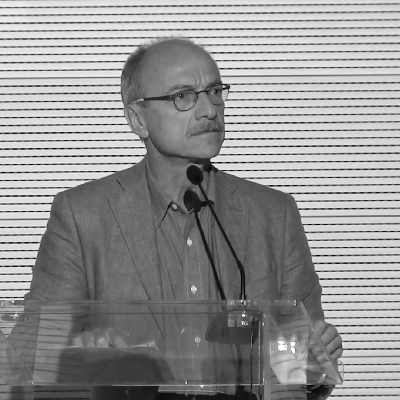 |
|
Giuseppe Picone (Rome, 1926-2008), ceramic plate, Young Priests
|
Each of these themes deserve careful attention. First of all, the courage the Pope has shown in addressing the issue of climate change. He has been one of the few people who has stressed the link with the dramatic increase in flows of refugees who risk destabilizing Europe, by denouncing “a tragic rise in the number of migrants seeking to flee from the growing poverty caused by environmental degradation”. His words on the need to abandon our dependency on oil and coal are unequivocal: “Technology based on the use of highly polluting fossil fuels – especially coal, but also oil and, to a lesser degree, gas – needs to be progressively replaced without delay”.
On Renewable Matter, however, we need to highlight an aspect that has received little attention in the interpretations, not in the text itself. Talking about “waste and the throwaway culture” Pope Francis hints at a series of issues that emerge several times in all the pages of the encyclical. The fight against the mental laziness of those who solve the problem of productive supply by plundering nature is condemned time and time again. Be it for dignity’s sake (“Reusing something instead of immediately discarding it, when done for the right reasons, can be an act of love which expresses our own dignity”). Be it for the sake of defending the roots of our existence (“The Earth, our home, is beginning to look more and more like an immense pile of filth”). Be it because of tensions linked to the plunder of raw materials that become scarcer and scarcer (“It is foreseeable that, once certain resources have been depleted, the scene will be set for new wars, albeit under the guise of noble claims”).
The Pope’s condemnation has to do, most of all, with the critique of an industrial model which has betrayed its preconditions and has denied the very concept of efficiency to which it seemed ready to sacrifice everything: “The way natural ecosystems work is exemplary: plants synthesize nutrients which feed herbivores; these in turn become food for carnivores, which produce significant quantities of organic waste which give rise to new generations of plants. But our industrial system, at the end of its cycle of production and consumption, has not developed the capacity to absorb and reuse waste and by-products. We have not yet managed to adopt a circular model of production capable of preserving resources for present and future generations, while limiting as much as possible the use of non-renewable resources, moderating their consumption, maximizing their efficient use, reusing and recycling them. A serious consideration of this issue would be one way of counteracting the throwaway culture which affects the entire planet, but it must be said that only limited progress has been made in this regard”.
“The throwaway culture” should therefore be considered an oxymoron. It is actually a lack of culture, a limit in understanding efficiency and convenience criteria. But this limit does not correspond to the current limit of knowledge. It is not an inevitable mistake. To maintain the current level of waste – tens of billions of tons of matter that are subtracted every year from the stable custody of ecosystems to be transformed into tens of billions of tons of waste that alter the equilibrium of the atmosphere and the earth – is a choice serving the interests of an industrial generation that is trying to delay the evolution towards a more mature approach to production.
The message of the encyclical is strong also from this point of view. The new approach to the circular economy is based on technology (the one that leads towards circular economy, the sharing economy, the economy based on a careful use of renewable resources). It is also based on consonance with nature (“We have forgotten that we ourselves are dust of the Earth; our very bodies are made up of her elements, we breathe her air and we receive life and refreshment from her waters”). Finally, it is based on new lifestyles (“Such sobriety, when lived freely and consciously, is liberating. It is not a lesser life or one lived with less intensity. On the contrary, it is a way of living life to the full”).
Laudato si’ is a text that speaks loud and clear, to catholics and non-catholics alike. It marks an important moment in the debate on the environment.
However, the lack of attention and authority on these themes in the political sphere is evident, also in response to solicitations from the secular world. For example, Achim Steiner, Director of UNEP, the UN Environment Programme, has recently stressed time and time again the need to speed up the transition to a circular economy. He has stressed how the last century has witnessed a rapid transformation of our relationship with the natural world, with an escalation in the use of resources: “We are now living 40% over the Earth’s capacity. If the world’s population and the levels of consumption stay the same, the annual global consumption of resources could reach 140 billion tons by 2050, triple what was consumed in 2000”.


